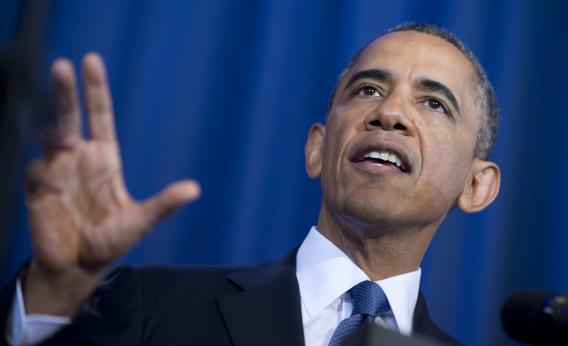President Obama’s Thursday speech has been widely billed as a drones address, but his remarks briefly touched on a couple of important issues involving privacy and surveillance. He seemingly acknowledged that his administration has come down too often on the side of secrecy over transparency, and of excessive security over liberty.
In the speech, delivered at the National Defense University in Washington, D.C., Obama appeared to directly support the FBI’s contentious proposal for enhanced Internet snooping powers. He said that it was necessary to review “the authorities of law enforcement, so we can intercept new types of communication.” He added, however, that it would be necessary at the same time to “build in privacy protections to prevent abuse”—in an apparent attempt to quell civil liberties advocates’ fears about the scope of the authorities’ powers.
Later, Obama indirectly addressed the recent revelations about the Justice Department’s spying on journalists as part of aggressive leak probes. He took a swipe at the DoJ, saying that he was “troubled by the possibility that leak investigations may chill the investigative journalism that holds government accountable” and that “journalists should not be at legal risk for doing their jobs.” He went on to acknowledge that “expanded surveillance” in the aftermath of 9/11 had “raised difficult questions about the balance we strike between our interests in security and our values of privacy,” adding that some counter-terror tactics “compromised our basic values.”
Obama seemed to try to return to the values he had claimed to champion prior to his coming to power—and his speech was certainly long overdue. Back in 2006, before becoming president, Obama strongly criticized the Bush administration’s so-called warrantless wiretapping program as “accountable to no one and no law” and blasted Bush for what he viewed as “unbounded authority without any checks or balances.” But just a few years later, these same criticisms have been repeatedly leveled at Obama due to his own administration’s use (and occasional threats of using) state secrets privilege on surveillance and drone strikes. On Thursday the president tried to show that he is listening to his critics. His challenge now will be to match his words with meaningful action.
